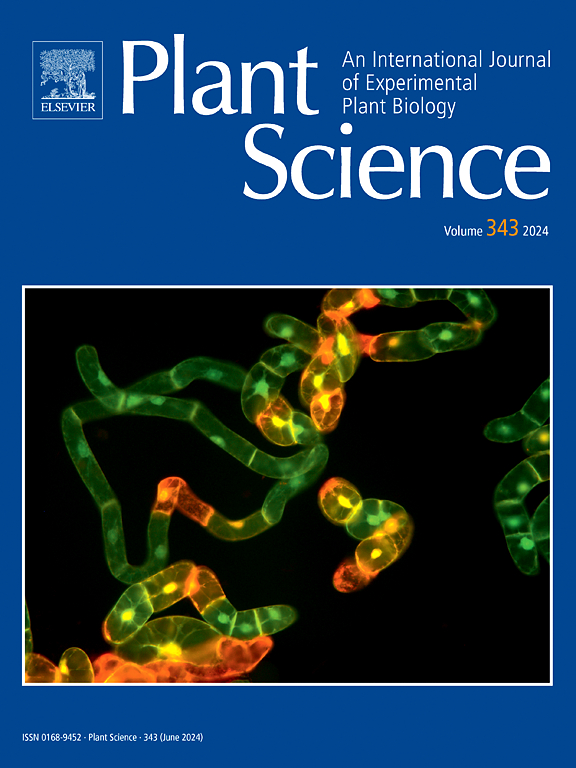Transcription factor SlGATA22 negatively regulates cold stress resistance and modulates tomato seedling growth
IF 4.2
2区 生物学
Q2 BIOCHEMISTRY & MOLECULAR BIOLOGY
引用次数: 0
Abstract
GATA transcription factors (TFs) play a variety of roles involved in the regulation of physiological processes in the plant kingdom. The functions of the majority of GATA TFs in tomato remain largely unexplored. SlGATA22 was found to be upregulated under cold stress conditions in tomato plants. In this study, we generated SlGATA22 mutants by CRISPR/Cas9 gene editing and SlGATA22-overexpressing tomato plants to elucidate its function. Results indicated that the internode length of SlGATA22 mutant seedlings became shorter, axillary meristem differentiation advanced and the cold resistance increased, while the internode of SlGATA22-overexpressing (OE) seedlings became longer and cold resistance decreased. Transcriptome analysis revealed that differentially expressed genes (DEGs) in SlGATA22 CRISPR mutant plants were significantly enriched in pathways related to environmental stress response, whereas DEGs in SlGATA22 overexpressing plants were primarily involved in basal metabolic processes. SlCBF1 and SlCBF2 expression patterns were influenced by SlGATA22 expression. These results demonstrate that SlGATA22 is a negative regulator that responds to cold stress and involved with the CBF pathway. Consequently, SlGATA22 may be a potential locus for genetic modification for enhancing crop abiotic resistance.
转录因子SlGATA22负调控番茄幼苗的冷胁迫抗性
GATA转录因子(TFs)在植物界的生理过程调控中发挥着多种作用。番茄中大多数GATA TFs的功能仍未得到充分研究。SlGATA22在番茄植株冷胁迫条件下表达上调。在本研究中,我们通过CRISPR/Cas9基因编辑和SlGATA22过表达的番茄植株产生SlGATA22突变体,阐明其功能。结果表明,SlGATA22突变苗节间变短,腋窝分生组织分化提前,抗寒性增强;过表达SlGATA22的突变苗节间变长,抗寒性降低。转录组分析显示,SlGATA22 CRISPR突变植物中的差异表达基因(DEGs)在与环境胁迫反应相关的途径中显著富集,而SlGATA22过表达植物中的差异表达基因主要参与基础代谢过程。SlCBF1和SlCBF2的表达模式受SlGATA22表达的影响。这些结果表明,SlGATA22是一个对冷应激作出反应的负调节因子,并参与CBF通路。因此,SlGATA22可能是提高作物非生物抗性的潜在基因位点。
本文章由计算机程序翻译,如有差异,请以英文原文为准。
求助全文
约1分钟内获得全文
求助全文
来源期刊

Plant Science
生物-生化与分子生物学
CiteScore
9.10
自引率
1.90%
发文量
322
审稿时长
33 days
期刊介绍:
Plant Science will publish in the minimum of time, research manuscripts as well as commissioned reviews and commentaries recommended by its referees in all areas of experimental plant biology with emphasis in the broad areas of genomics, proteomics, biochemistry (including enzymology), physiology, cell biology, development, genetics, functional plant breeding, systems biology and the interaction of plants with the environment.
Manuscripts for full consideration should be written concisely and essentially as a final report. The main criterion for publication is that the manuscript must contain original and significant insights that lead to a better understanding of fundamental plant biology. Papers centering on plant cell culture should be of interest to a wide audience and methods employed result in a substantial improvement over existing established techniques and approaches. Methods papers are welcome only when the technique(s) described is novel or provides a major advancement of established protocols.
 求助内容:
求助内容: 应助结果提醒方式:
应助结果提醒方式:


